Communication Scholar Amanda Cooper shares advice on how to navigate loneliness and social interaction
Dr. Amanda Cooper provides insight on how to navigate feelings of loneliness and ways for students to address it. Read the article on UConn Today
 Assistant Professor of Communication Shardé Davis is the 2018-19 recipient of the American Fellowship for Postdoctoral Research Leave awarded by the American Association for University Women (AAUW). The primary purpose of the Postdoctoral Research Leave Fellowship is to increase the number of women in tenure-track faculty positions and to promote equality for women in higher education. This fellowship is designed to assist the candidate in obtaining tenure and further promotions by enabling her to spend a year pursuing independent research.
Assistant Professor of Communication Shardé Davis is the 2018-19 recipient of the American Fellowship for Postdoctoral Research Leave awarded by the American Association for University Women (AAUW). The primary purpose of the Postdoctoral Research Leave Fellowship is to increase the number of women in tenure-track faculty positions and to promote equality for women in higher education. This fellowship is designed to assist the candidate in obtaining tenure and further promotions by enabling her to spend a year pursuing independent research.
The month of March is very special to the Department of Communication because it is Women’s History Month. We are lucky to have so many women faculty members that are constantly innovating the field of Communications and making history. Some of these amazing women have compiled words of wisdom to share with other women who are looking to be history makers themselves.
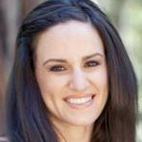 Amanda Denes Ph.D.– AAmanda Denes is an Associate Professor and the Director of Graduate Studies in the Department of Communication. Her research focuses on communication in various types of interpersonal relationships such as romantic relationships, parent-child relationships, and friendships.
Amanda Denes Ph.D.– AAmanda Denes is an Associate Professor and the Director of Graduate Studies in the Department of Communication. Her research focuses on communication in various types of interpersonal relationships such as romantic relationships, parent-child relationships, and friendships.
“One piece of advice is to make sure you find time to take care of yourself. There are so many struggles that women face on a daily basis that can be emotionally and mentally draining, so looking out for our own mental health and well-being is pivotal. There is sometimes stigma around mental health issues, but it’s so important for women to have an outlet and place to discuss struggles. Part of our gendered society is that women are often taxed with managing other people’s problems, fixing everything for everyone, doing the unpaid emotional labor, etc… it’s important to take time for yourself, whether that be finding a great therapist, practicing yoga or meditation, going on a run, or taking time for any other forms of self-care. For me, part of this also means having a great network of female friends. I am so fortunate to have amazing women in my life that help provide support and empowerment–they have helped me through so many challenges and the ups and downs of building a career. Whatever way you choose, make sure to take time for yourself and to not feel guilty about engaging in self-care.”
 Shardè Davis Ph.D.– Dr. Shardé M. Davis is an Assistant Professor in the Department of Communication and a faculty affiliate of the Africana Studies Institute and the Institute for Collaboration on Health, Intervention, and Policy (InCHIP) at UConn. Her research explores how Black women’s complex identities—and the power-laden social structures that shape them—influence the way they communicate with close others.
Shardè Davis Ph.D.– Dr. Shardé M. Davis is an Assistant Professor in the Department of Communication and a faculty affiliate of the Africana Studies Institute and the Institute for Collaboration on Health, Intervention, and Policy (InCHIP) at UConn. Her research explores how Black women’s complex identities—and the power-laden social structures that shape them—influence the way they communicate with close others.
“My advice to other women is to give yourself some grace. U.S. Society has a way of making women (especially women of color) feel like we aren’t doing enough. We fall victim to the superwoman archetype and push ourselves beyond our physical, mental, and psychological capacities to be our “best self” in every situation and in the company of others. This lifestyle is not sustainable and research shows that it corresponds to maladaptive health outcomes. We need to tell ourselves that if we are trying our best then that is enough! Don’t compare yourself to other people, namely folks who have gender, racial, class, and other institutional privilege over you. It’s not a fair comparison and we will fall short every time. Focus your energy on being your best self based upon your own (reasonable) standard of excellence. We also need to listen to our bodies and take a break when we experience exhaustion and take a moment to respect our emotional process and expression. I study these topics for a living, yet I struggle to adhere to my own advice at times. So please know that our womanhood is an ever-evolving journey.”
 Anne Oeldorf-Hirsch Ph.D.– Anne Oeldorf-Hirsch is an Assistant Professor in the Department of Communication at University of Connecticut, where she conducts research in the Human-Computer Interaction lab. Her research interest is on the benefits of social media in terms of learning new information, civic engagement, and well-being.
Anne Oeldorf-Hirsch Ph.D.– Anne Oeldorf-Hirsch is an Assistant Professor in the Department of Communication at University of Connecticut, where she conducts research in the Human-Computer Interaction lab. Her research interest is on the benefits of social media in terms of learning new information, civic engagement, and well-being.
“Be honest with yourself about what you really want. Society puts strong pressure on all of us about what we should be striving for, and the pressure is even stronger for women. We have been put into prescribed paths for most of history about what it means to be a woman, what we should expect out of life, and what is expected of us. Expect things for yourself, and work to fulfill your true needs and desires.”
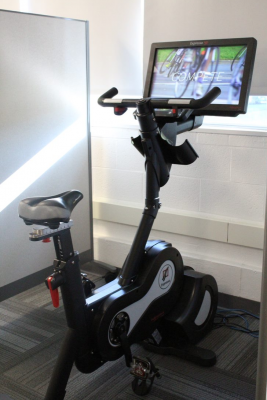 After a lot of hard work on proposals, Professor Rory McGloin was awarded with the Collaboratory on School and Child Health 2018 Encore Grant for his latest project, “Gearing up! Using Exergaming to Impact Health in Overweight Children”. Professor McGloin along with Department of Kinesiology and Department of Educational Psychology’s Jaci VanHeest will be conducting research on Children and their attitudes towards exercise.
After a lot of hard work on proposals, Professor Rory McGloin was awarded with the Collaboratory on School and Child Health 2018 Encore Grant for his latest project, “Gearing up! Using Exergaming to Impact Health in Overweight Children”. Professor McGloin along with Department of Kinesiology and Department of Educational Psychology’s Jaci VanHeest will be conducting research on Children and their attitudes towards exercise.
McGloin and VanHeest will be conducting a 10 week study where they will give children in schools access to exergaming bikes to see if it will increase their physical activity throughout the course of the study, as well as an increase in self-efficacy towards physical fitness. McGloin hypothesizes that exergames will help engage students in a unique way because it mimics the immersiveness of a video game.
McGloin and VanHeest plan on using the grant to purchase an exergaming bike which will be used to set up a remote lab location in a local school system. Students will receive Amazon gift cards for participating to encourage the continuation of participation. McGloin also stated that part of the grant will be set aside to hire a motivated and responsible student to assist in running the lab.
Professor McGloin deems this research important because obesity continues to be a major issue in society, and the cause for concern increases as time spent engaging in physical activity is diminishing. In the school systems, technology is displacing time spent being active at an alarming rate. The researchers believe that doing this long-term intervention will allow them to see how they can respond to the novelty of the device, and if it has a future within school programs.
When asked about his interest in the research, McGloin stated that it’s important to determine the effects of these new technologies and many of the opportunities that they may or may not provide to users. He finds it very rewarding to work on research that can ultimately improve someone’s lifestyle and make a difference in their lives. This study is a great way to get people to ask themselves about the effects media has on them.
The study will be taking place over the course of the next year. After the study, the researchers hope to present their findings with members of the local community to raise awareness for children who are obese, or at risk, and may need help achieving their daily activity goals.
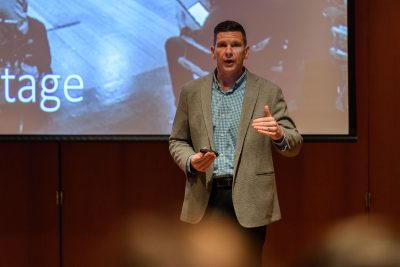
To continue the tradition of metanoia, the UConn Community declared Wednesday, November 8th as a day of “reflection, learning, sharing, and transformation focused on confronting racism in our university, our state, and our nation”. Recent events such as Charlottesville have brought to light the racism, anti-semitism, islamophobia, nativism, and colonialism that still exists in America. As the University recognizes this, the Department of Communication would like to contribute insight on the role of communication in battling racism.
Communication Professor Shardé Davis explains the importance of this day of metanoia as an open space where people can talk and learn about the topic at hand. Susan Herbst stated that, “racism is not a problem to be solved, but a fundamental part of our history and contemporary society for which we must take responsibility”. Professor Davis exclaimed that it becomes problematic when people deem our society as a post-racial society, and act as if racism doesn’t exist. The Metanoia events gave many opportunities to students, faculty and staff to call attention to an issue in order to agree upon its existence.
Professors Rory McGloin and John Christensen held a seminar to discuss racial stereotypes in sitcoms. The seminar created an open discussion about the way that minorities are portrayed in media and the effects of the stereotypes that are present. Media makes up a large portion of the field of communication. This seminar allowed for students, faculty members, and community members to call to action the need for change in the industry and ways that change could occur.
There are many different ways to communicate about racism, but below are a few examples that Professor Davis suggested as the campus combats racism even after the designated day of metanoia.
Thinking before you speak- Often times when people use racial microaggressions or stereotypes, it’s because they don’t fully think about their words before they say them. In order to prevent this from happening, evaluate what you’re going to say before you say it.
Active Listening- When talking about issues such as racism, many people are so set on their own views that they speak more than they listen. Active listening is important because it allows people to understand other perspectives and it opens up opportunity for people to learn more about the subject.
Be open to learning- If people are open to learning, they also open themselves up to change. If people take it upon themselves to learn about racism by searching for sources to learn more about it, such as on campus cultural centers, they open themselves up to opportunities to grow and educate themselves and others on ways to combat racism.
The Department of Communication embraces diversity, and its members constantly devote themselves to combating prejudice. The day of metanoia was a fantastic opportunity for people to come together and speak about such an important topic, but we encourage you to battle racism every day of the year.
Congratulations to the graduating Class! We have been lucky to teach you, learn from you, and grow with you as scholars and fellow Huskies. Over the past four years you’ve developed the skills you need to take this next step. The Department of Communication is excited to watch you thrive as individuals and professionals. After watching you grow over the past four years, professors from the department would like to share a few words of encouragement with you:
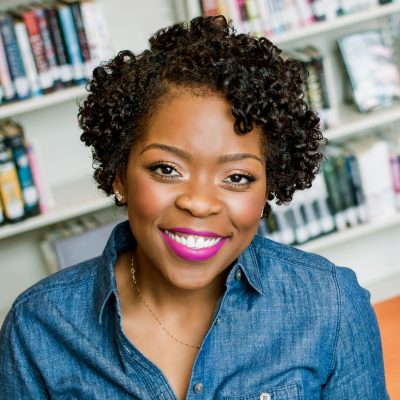
“Think outside of the box, live in the moment, always check your entitlement (people don’t owe you anything!), and remain humble.” – Professor Shardé Davis
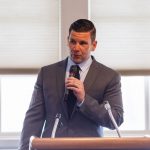
“Be confident in what you have learned, but seek humility in your day to day adventures. Remember that learning is a never-ending and on-going process so utilize the knowledge you have gained in regards to how you learn and attempt to apply those skills every day. Seek value from your human interactions and try to adopt the best attributes and characteristics of those individuals whom you respect and look up to.” – Professor Rory McGloin
 “Be your own advocate.” – Advisor Katie D’Antonio
“Be your own advocate.” – Advisor Katie D’Antonio

“Don’t be afraid to work hard take risks and try new things. Don’t take the easy way out. This pairs nicely with my favorite quote from Bruce Lee: ‘Knowing is not enough, we must apply. Willing is not enough, we must do.’” – Professor Kirstie Cope-Farrar
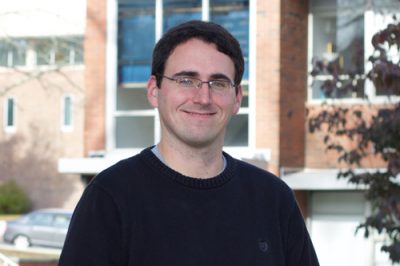
“Keep an open mind about the kinds of positions you consider for employment. Your training and experience in Communication makes you a very flexible professional with something to offer to a LOT of fields. Consider compiling the projects you’ve done into a digital portfolio that you can put online as a supplement to your résumé. And most of all, keep your head up – the careers of many of us were nonlinear, with several twists and turns that seemed quite random in the moment, but quite necessary when looking back in time.” – Professor Stephen Stifano

“In the immortal words of Buckaroo Banzai, ‘Remember: no matter where you go… there you are.’” – Professor Mark Hamilton
As you take this next step with confidence, always remember: students today, Huskies forever. Best of luck!
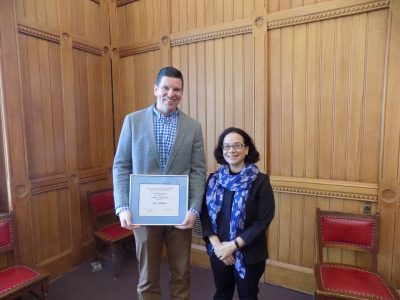 After years of hard work and dedication to his students, Communications Professor Rory McGloin was awarded the American Association of University Professor’s (AAUP) Excellence Award for Teaching in Early Career. He currently teaches Principles of Public Speaking (COMM 1100) and is conducting research involving media effects related to video game usage. Professor McGloin has been a part of the UConn Department of Communication for ten years, first as a graduate student and later becoming an Assistant Professor. His devotion to his courses can be seen inside and outside of the classroom.
After years of hard work and dedication to his students, Communications Professor Rory McGloin was awarded the American Association of University Professor’s (AAUP) Excellence Award for Teaching in Early Career. He currently teaches Principles of Public Speaking (COMM 1100) and is conducting research involving media effects related to video game usage. Professor McGloin has been a part of the UConn Department of Communication for ten years, first as a graduate student and later becoming an Assistant Professor. His devotion to his courses can be seen inside and outside of the classroom.
McGloin stated, “I want to find ways to sustain my passion and desires over a long time. I do a lot of self evaluations, and that’s what drives me to want to get better every single day. You can never settle for what you did yesterday, you have to get better at it the next day.” Professor McGloin is constantly searching for ways to improve upon his interactions as a professor, researcher, adviser, and human. His passion for teaching has spilled over into his role as an adviser for the Communication Society. The Communication Society is a club that is dedicated to helping undergraduate students explore the professional fields of communication. McGloin claims that his work with the Comm Society is one of the things he is most proud of. Watching students that are so committed to their careers is something he has a lot of passion for because it’s not about points or grades, it’s about students who genuinely want to learn and better themselves. Undergraduate student and president of the Communication Society, Grace Gagnon, stated, “I met Rory my freshman year through Comm Society and ever since then he has been one of the most influential professors I’ve ever come across. He saw potential in me and gave me the tools to turn that potential into a leadership position. What sets Rory apart from other professors is his pure devotion to his students. Communication classes can be very large and it allows for some students to get lost, but Rory never lets that happen. It is obvious that Rory genuinely cares about each student’s learning experience. He is the most deserving person for this award!”
As a person who strives for personal growth, Professor McGloin feels it’s important to teach students in a way that, by the end of each class, they’ll have learned something that they can apply to their life that day. He strives to assure that students aren’t just walking away from his class with a grade, he wants them to walk away with an experience that has shaped their lives and educated them. McGloin has found that the most rewarding part about being a professor has been “The moments where you see students learning things about themselves”. It’s clear that his passion for going above and beyond what’s expected of him is carried out into his teaching.
The Department of Communication is lucky to have a professor as devoted as Professor McGloin, and are thankful for his attributes that earned him this award. We look forward to seeing him and his students grow in the future.